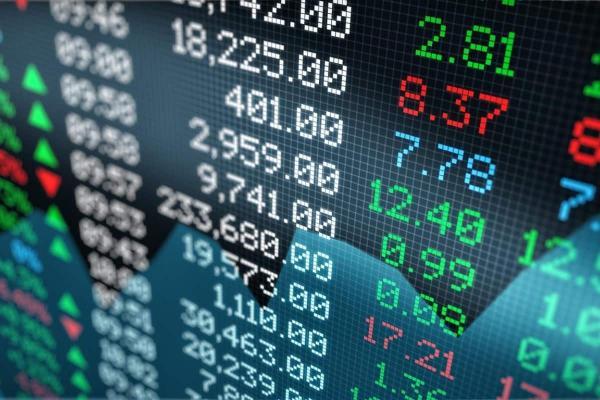Stock Exchange: A Beginner Guide
No matter whether you want to trade in the Forex, stock, bond, or option markets, you should know how the financial world works in general. One of the key terms you should be aware of is the stock exchange. In our guide, we will explain the basic principles of any stock exchange, talk about the history of the exchanges, and teach you how to enter an exciting world of shares.
Stock Exchange: Back in the 16th Century
The stock market originated in Europe. In the 16th and 17th centuries, the first stock markets appeared in such cities as London and Amsterdam. However, they barely resemble the current stock exchanges seen today. At that time, companies were semi-public and needed government permission to do business.
The origins of the stock exchange go back to the 16th and 17th centuries.
Later, in the 18th century, the real stock exchanges were founded in the USA. For instance, the famous Philadelphia Stock Exchange (PHLX) which provided share trading. The exchange still exists.
At that time, the exchange was created due to the Buttonwood agreement that was made by 24 stockbrokers and merchants from New York City. Before the official establishment of the stock exchange, brokers met without an official regulation, under a buttonwood tree, on Wall Street to trade stocks.
When hearing about the world stock exchange, most people imagine Wall Street, guys in suits who shout, call, and try to catch the best option. However, times and exchanges have changed.
Nowadays, the system has significantly developed. Traders are ensured that the socks have fair prices. Moreover, there are stock exchanges all around the world which are interconnected electronically. This means that financial markets have become more liquid and effective.
Stock Exchange Definition
The stock exchange is an institution that provides share trading. It's the place where investors meet to buy or sell securities. Any stock exchange works under a specific regulation that controls exchange players and market operations. Also, the stock exchange has specific working hours.
The stock exchange is an institution that provides regulated share trading.
In common words, the stock exchange is a secondary market. The primary market is where a company issues its shares. The purpose of the share placing is the willingness to attract additional funds. This money can be used for any company's operational goals.
After the company issues stocks, there are those who will want to either buy or sell them (the buyers of the primary market). So, these people meet on a regulated platform where transactions are fair and regulated. The stock exchange serves as this platform.
Nowadays, the world share market operates via a network of stock exchanges connected electronically. Still, there are exchanges with a physical location with a trading floor.
What Are the Functions of a Stock Exchange?
It seems the main function of the exchange is clear. But there are additional roles that are not as visible:
- Secondary market. It's the leading function of any stock exchange. Any stock exchange serves as a secondary market for the stocks a company issued. So, holders and buyers of shares meet on the platform to perform the regulated operations with securities.
- Economic health. The stock exchange also serves as a barometer of economic health. The stock market is used by analysts to predict the direction of many financial markets. For example, when the stock market rises, it's a sign of the relief and investor's willingness to invest in risky assets.
- Company’s reliability. Also, an exchange determines the reliability of the company whose shares you listed on it. There are criteria the company should meet to be traded on a stock exchange.
- Safe transactions. Any stock exchange has a regulator that controls its operation.
- Fund mobility. An exchange is a place where not only individual traders but also big players as funds and online brokers meet. You never know who buys or sells shares.
How Stocks Are Traded
Here, we should highlight two terms. They are primary and secondary markets. The primary market refers to when the securities are issued via an IPO (initial public stock offering). The shares are offered to an initial set of public shareholders.
The secondary market is what we call the stock market. It's the market where investors and traders can deal with the shares, without the inclusion of the issuing company. As investors don't interact with the company that directly placed the securities, the stock exchanges serve as a connector, or a platform, that allows buyers and sellers to fulfill their needs.
The secondary market is the stock market, where investors and traders can deal with the shares without the inclusion of the issuing company.
To deal with shares in the stock exchange, you need to apply to the broker of an adviser who will represent your interests.
How to Set Stock Prices?
The most important issue for traders is the price. So, how is the stock price determined? The cost of shares depends on the supply/demand principle. When the company is listed on the stock exchange, there are buyers and sellers of its stock. They determine the average price that meets the desired level at which a seller wants to sell the stock and the level at which a buyer is ready to purchase it. The exchange just tracks the order flows for each share.
Stock Market Players
The stock market is formed not only by traders but also by other players that significantly impact the market operations. Look at the list below:
- Companies. Companies or their management are those who issue stocks to create a product for the stock market.
- Brokers. It's firms that represent trader or investor interests in the big market. It's much easier to enter the world stock market via a representative.
- SEC (Securities Exchange Commission). It's the organization that controls the fairness of prices, insider trading, and other regulations that can affect market participants.
- Online investors. Although online brokers represent investors, they are indirect market players.
- Financial advisers. Not all investors have enough skills to provide stock operations. Thus, they apply to financial advisers who manage their money.
- Funds. Here we can mention mutual, hedge, and pension funds. These are organizations that operate investments of others.
Conclusion
Stock exchanges have many benefits. However, there are also limitations. One of them is an inability to sell stocks until you have them. It makes a difference with CFD trading, which allows you to buy and sell shares without ownership. CFD stock trading provides an opportunity to enter the market any time you want.
In general, it doesn't differ from stock exchange trading. To predict the stock direction, you also should combine fundamental and technical analysis. If you want to practice CFD trading, you can open a Libertex demo account. It fully resembles a real one but allows you to practice without risks to your account.
Why to trade with Libertex?
- access to a demo account free of charge
- technical assistance to the operator 5 days a week, 24 hours a day
- leverage up to 1:500 for professional clients
- operate on a platform for any device : Libertex and Metatrader 4 and 5
- no commissions for extractions in Latin America
Why to trade with Libertex?
- access to a demo account free of charge
- technical assistance to the operator 5 days a week, 24 hours a day
- leverage up to 1:500
- operate on a platform for any device: Libertex and Metatrader 4 and 5
- no commissions for extractions in Latin America




